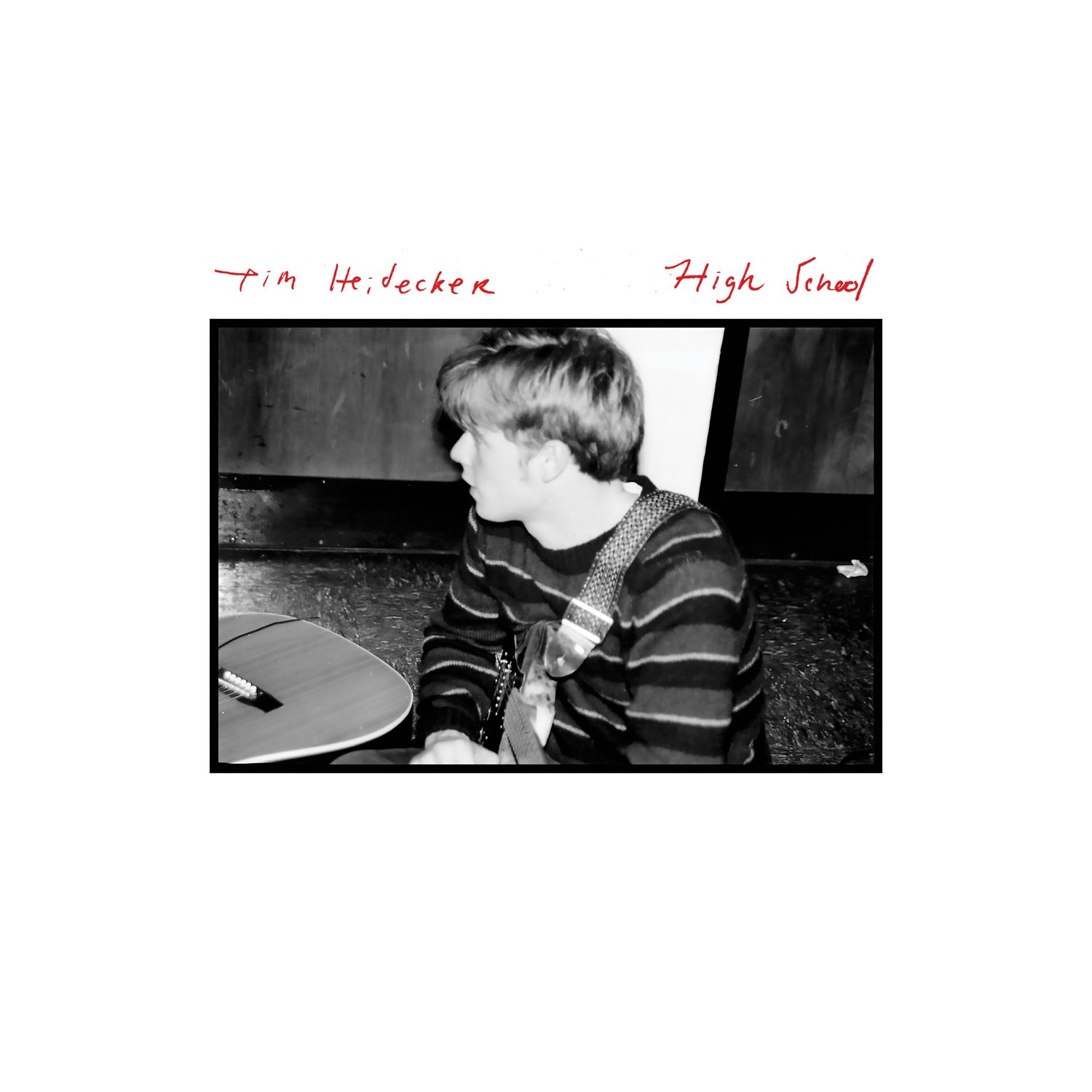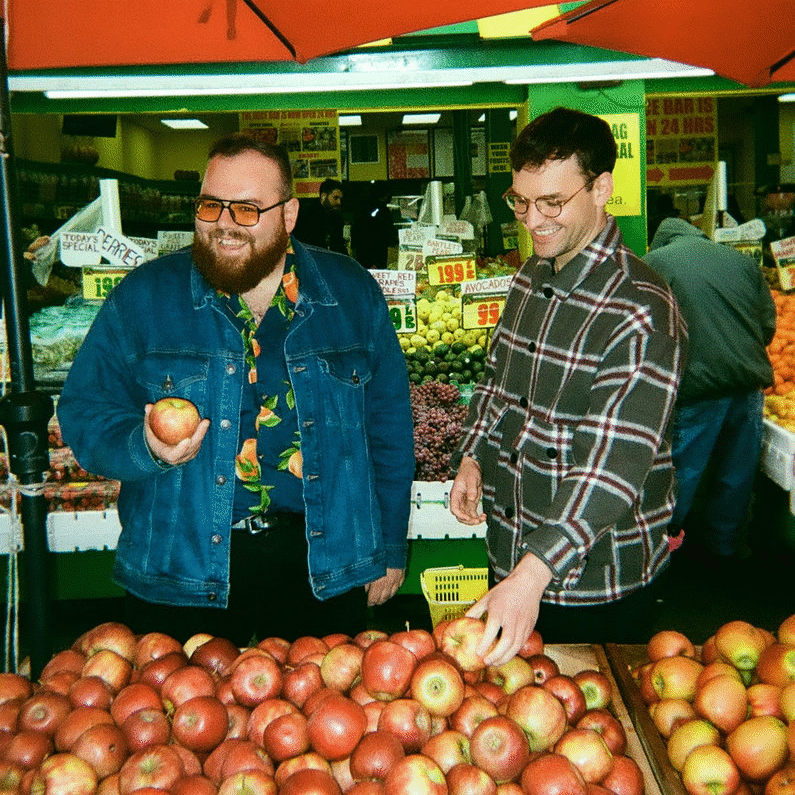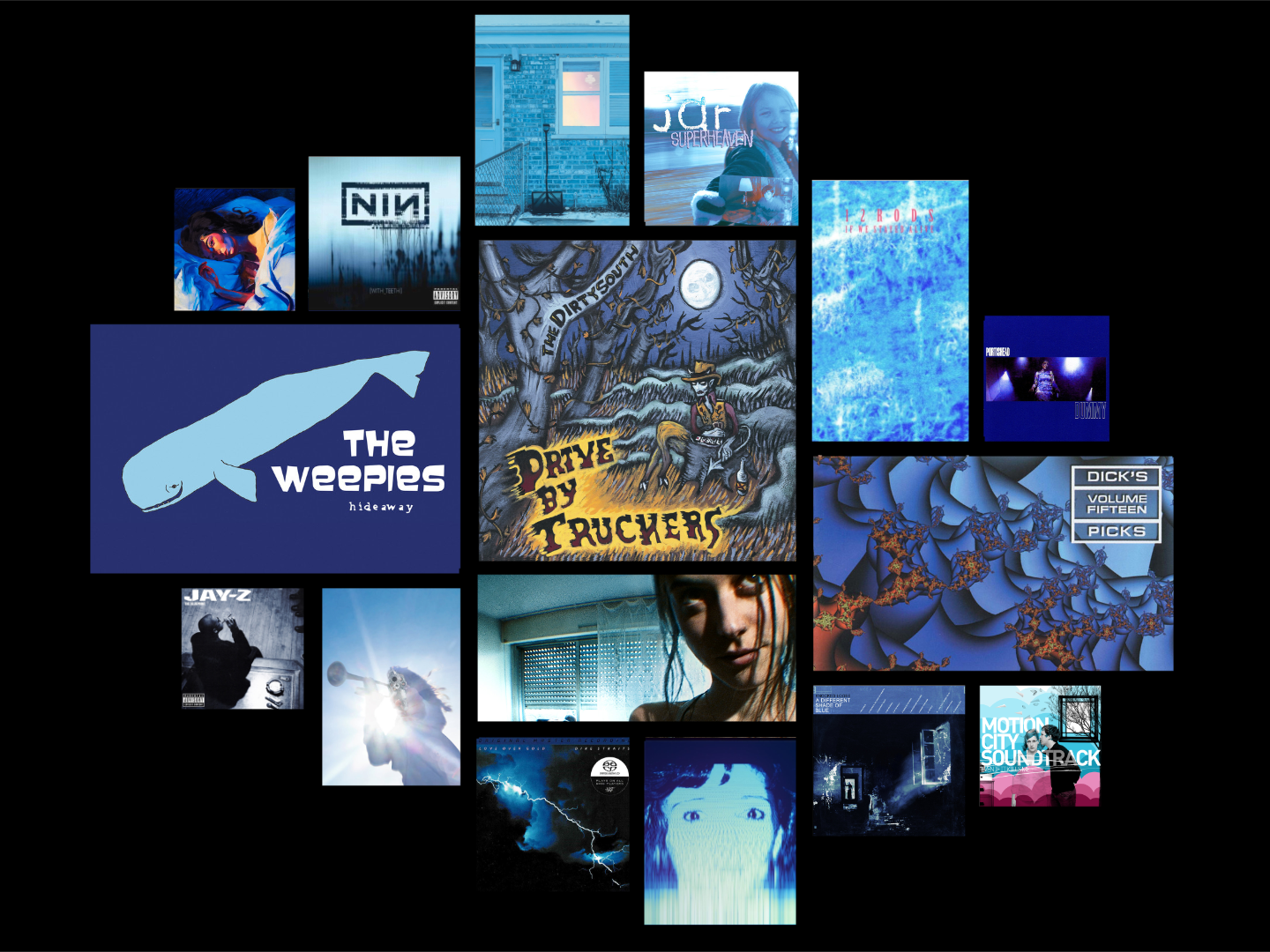Colleen Dow – Inside Voices | EP Review
/What’s in a name? Colleen Dow already has a pretty good one in Thank You, I’m Sorry–a Minneapolis-based emo project that began with solitary bedroom acoustic recordings but quickly blossomed into a fully-fledged indie rock group. Regardless of the scale that TYIS took, Dow’s writing and voice always shined through as the transfixing centerpiece at both ends of this spectrum. Whether articulating the realities of depression or fixating on the woes of tour life, it was easy to find a home in these songs and empathize with Dow’s perspective within them. And now, thanks to a string of solo releases under their own name, there’s a new dwelling in which fans of Dow’s work can nuzzle up to their own anxieties.
When Dow released “Periwinkle” back at the end of 2021, it felt like a strange sense of deja vu. Given how unique Dow’s voice is, given that Thank You I’m Sorry started as a solo project, and given that it was being released on the same label, it was easy to see this single as an extension of Dow’s main band… that is until you listen to it.
While TYIS songs tend to explode forward with nervous energy and feature noodly math rock riffs, “Periwinkle” opens with a woozy guitar sway and ignites in a dreamy synth beat. Glitchy vocalizations flit and flutter on the outer edges of the song, still recognizable as Dow but obscured by a cold, technological feeling. While relatively peppy, the song’s lyrics still bear the trademarked emotional struggle Dow often writes around, lending the piece a nice artistic continuity.
A month later, things got even sadder with “Sorry,” a crushing song centered around a reverb-soaked Julien Baker guitar line and adorned with appropriately dour album art. For the first three months of 2022, Dow sent out monthly dispatches in the form of “Bumbum,” “Yeah,” and “Lists.” Each song leaned into a different style of electronic music, always guided forward by Dow’s voice, augmented by subtle guitar playing, and accompanied with awesome art courtesy of Sim Morales of Insignificant Other.
So what did Dow find in a name change? Freedom for one, lack of expectations for another. By releasing these songs under their own name as opposed to the up-and-coming indie rock band they front, Dow forced the listener to approach, listen to, and conceive of these songs as something different from their “main” act. Why feel boxed in creating a follow-up for your emo project when you can explore something totally new within the confines of your own name?
I figured this string of singles was essentially just a creative exercise for Dow; one-off pieces of music that they could drop with less pressure and more creative control. I should have known better. I should have Trusted In Dow because now we have Inside Voices, a 5-song EP that drops 13 minutes of new material at once, rounding out Dow’s solo “side project” to a solid 26 minutes of music, a collection that surpasses the very first TYIS release by about four minutes.
Throughout the new EP, Dow remains as honest as their previous work, equal parts charming and disarming. On the boppy opening track, “Bummer Summer,” Dow sings, “Banging my head against the wall / I can tell from your eyes that it’s all my fault / I’ve been staying up late and don’t ever call you back.” You always know exactly what Dow is struggling with because they find a way to say it plainly and calmly. While these lyrics might read as sad-to-a-fault on paper, Dow’s forthright approach is nothing but compelling within the music.
And it turns out that labeling these emotions has paid off well; a few lines later in the same song, Dow sings, “I know better than to build all these walls / And it wouldn’t be that hard to just give you a call.” These lyrics make the solution clear; wisdom gained from having weathered these experiences and made it out the other side.
This honesty allows for a surprisingly fluid train of logic that keeps the listener nodding along, wincing with pain as each line of the song adds a different brush stroke of ennui. These sentiments would be harder to swallow if they weren’t swaddled in such sweet instrumentals and packaged in such adorable album art.
Guest appearances from fellow bedroom rockers Ness Lake on “Childhood Home” and Snow Ellet on “Radiator” help push the view beyond Dow’s perspective, fleshing out the world and adding a nice variety to the middle of the release. While relatively subtle and never show-stealing, these collaborations make Inside Voices feel more like a mutual support group as opposed to a solitary dairy entry. This is even reflected on the EP’s cover, which sees all the people from the preceding single releases coming together for a wholesome hug–a mini multiverse moment for the ever-expanding Colleen Dow musical universe… Dow-iverse? We’ll figure out a better name later.
Like the first sip of a sugar-free Red Bull, “Redline” injects some buoyant energy into the final stretch of the EP. The song walks a line between the kind of sad confessionalism we’ve heard up to this point but also acts as a (half) love letter to Dow’s temporary home of Chicago. That two-minute burst of energy paves the way for “Lil Kid,” an ultra-relatable song about finding a grounding sense of peace in taking a stroll while listening to Courtney Barnett on your headphones. Wow, they’re just like me for real.
As the EP’s final song wraps up, I come back to the question I asked at the beginning and think maybe a name doesn’t matter at all. Listening to Inside Voices, I’m just as taken with Dow’s artistic vision as I was when I first found Thank You, I’m Sorry. Especially when taken in concert with the preceding string of singles, it’s amazing to have what’s ostensibly a full LP’s-worth of music from someone you were already a fan of. Whether it’s in their main band, their solo project, or something totally new, the most important thing is that we are lucky enough to keep hearing from Dow.













